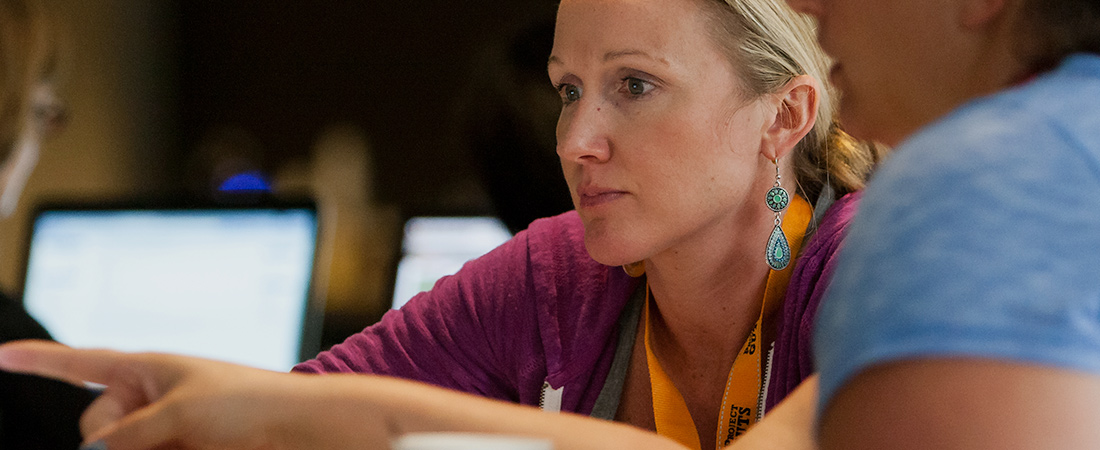
In the United States, EDC’s teacher professional development programs help educators improve their craft.
EDC develops practitioner-informed professional development and resources that build professional and organizational capacities. We engage educators, health providers, and community agency staff in communities of practice that reflect current findings on effective strategies to support adult learning and systems improvements.
We develop and deliver training and technical assistance to frontline staff in classrooms, clinics, and communities that support their use of evidence-based practices to enhance services. We also build policymakers’ capacity to collect, analyze, and use data to guide decision-making.
Learn about EDC’s work to strengthen early childhood interventions with Continuous Quality Improvement.
Related Content
A Second Chance at School in Mali
In Mali, accelerated education is helping thousands of children get back to school.
Helping All Children Learn and Thrive
EDC’s David Jacobson discusses his ideas for changing—and improving—early childhood services.
Addressing the Opioid Crisis through Home Visiting
Home visiting programs are critical to supporting children affected by opioid misuse, says Loraine Lucinski.
Crisis, Conflict, and Resilience
In times of crisis or conflict, some communities struggle while others pull together. It’s all about resilience.
Accelerating Education in Liberia
An estimated 300,000 Liberian children do not attend school. What’s being done to provide more access to education?
3 Ways Schools Can Support Children Affected by the Opioid Crisis
Schools are uniquely positioned to address the needs of children exposed to trauma, says Shai Fuxman.
Projects
Resources
Here are a few of our resources on capacity building for individuals, organizations, and systems. To see more, visit our Resources section.
In this midterm evaluation of the Basa Pilipinas project in the Philippines, EDC tracked and measured changes in student reading performance.
This guide provides youth-serving program developers and practictioners with a practical set of suggestions and reference materials to improve youth livelihood development practices and to expand programming in this important area.
Featuring insights from leading researchers, this brief describes National Science Foundation Discovery Research K-12 projects that identify strategies to accomplish the following:
This series of three engaging, animated videos presents some key considerations and potential pitfalls to avoid in choosing and using an effective curriculum.
The death of an officer by suicide requires immediate steps to support the officer’s family, department, and other loved ones. After a Suicide in Blue: A Guide for Law Enforcement Agencies provides best practices in suicide prevention to guide agency response efforts, including actions to take immediately following a suicide loss, as well as support and services for agencies to consider having available over time.
These stories were developed through the support of USAID’s Core Education Skills for Liberian Youth (CESLY) program.
This study was designed primarily to measure learning gains among Standard One-level treatment beneficiaries of the Radio Instruction to Strengthen Education project in Zanzibar.
This resource library contains an array of practice briefs, videos, webinars, and curated resource links to help mental health professionals better address the needs of individuals affected by HIV.
This toolkit helps build the capacity of teachers and leaders to use evidence-based practices, universal design for learning (UDL) principles, and technology to improve student engagement, motivati
This report presents detailed descriptions of five guidelines for schools and districts to consider as they draw upon interactive mobile technologies to promote students’ mathematical thinking.